Norse mythology holds the answers to all your God of War questions
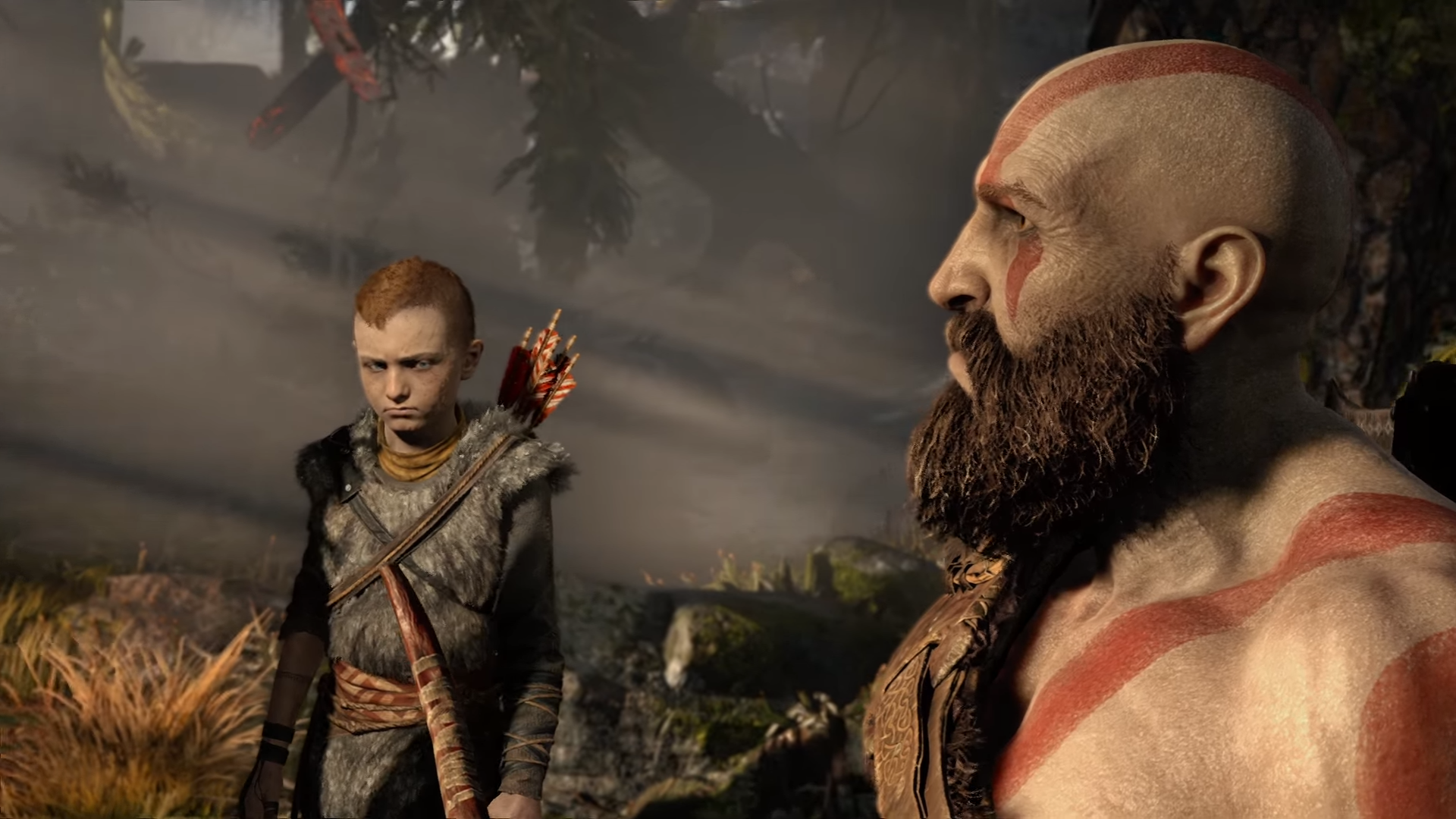
So you’ve seen the new, Scandinavian-themed God of War from E3. You’ve watched Kratos’ transition from furious, eye-popping death-man to concerned but emotionally repressed father. You’ve seen rangey, rapid-fire combat replaced with slower-paced, altogether more intimate, father-and-son beast slaying. But there’s still one big question regarding the series’ new direction. Just what the hell exactly is going on?
What is Kratos’ role in this new world of Norse mythology? Who is his son, and how will his presence affect the shiny-scalped berserker’s usually solo jaunts of dismemberment? What is Kratos’ place in this new realm, and how will the known roster of Norse gods and monsters play into his story? I think I might have some serious answers. Because I’ve spent the last couple of days performing a graceful deep-dive into Norse myth, investigating, comparing, and exploring a great many parallels and hints that might just tell us rather a lot about the new God of War’s story, characters and concerns.
But let’s start with the question that’s been going around most frequently, shall we?
Is the son Thor?
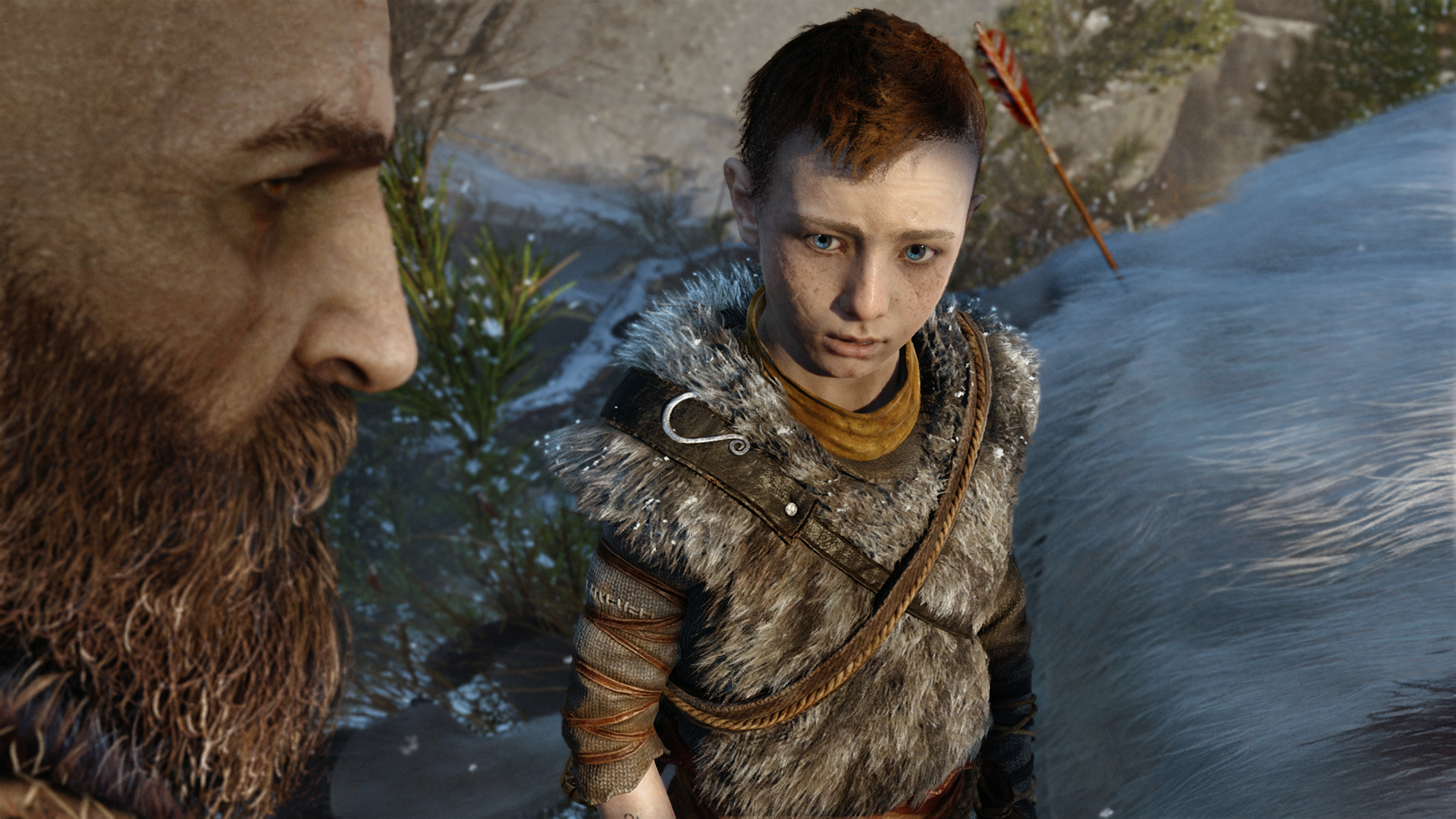
Despite popular internet opinion, I don't think he is, no. There are several reasons for this. First, and probably most important, is the logistical problem of using such a – literally – storied character. We already know too much about Thor. We know too many specific tales of his life. We even know his ultimate fate. He’s the son of Odin, king of the gods. He’s very much a god of the common man, a warrior of the people. He’s destined to fight Jormungandr – the huge World Serpent, and child of Thor’s trickster brother, Loki – at Ragnarok, the Norse apocalypse. He’ll have a go at catching the thing on a fishing trip along the way, before his giant friend stops him because it is A Very Bad Idea.
Thor is undoubtedly a hot character, but he’s too much of a known quantity to write around, even if adapting his lore in abstraction. Do not forget that Kratos was an original character created to exist around Greek mythology, able to drift in and out of it without being restricted by pre-documented actions. The new God of War’s characters will need to do the same.
Additionally, Thor, by his very nature as the best-known son of the king of the gods, would not have spent his early years pottering around the Earth-realm of Midgard hunting deer with some adopted baldie while waiting for an origin story to start. He’s royal Asgardian stock from day one. A pre-thunder-god early days story would likely feel too much of a stretch. It could be done, but it would be hard to avoid such a tale feeling rather forced indeed.
But how about Kratos? Can we read much into his newfound Norse position? And can that in turn tell us anything about his son?
Sign up to the GamesRadar+ Newsletter
Weekly digests, tales from the communities you love, and more
Is Kratos Odin?
In tandem with the Thor theory, the internet has been fairly fixating on the idea that Thor is Odin, a concept probably spun out of a logical progression from that initial thought. So could Kratos be the Norse god king? There is actually some lore that backs this up, or which at the very least doesn’t contradict it. You see Odin, while now portrayed as a wise and noble warrior ruler, wasn’t always that. Early versions of Odin depicted more of a wily old asshole. An interfering, war-mongering trickster. Imagine a more self-serving, violence-loving Gandalf, and you’re pretty much there.
Original Odin was a self-interested wanderer, with more care for throwing rocks into ponds and seeing what the ripples did than for maintaining fairness, order or justice. In matters of war, he was more concerned with enjoying the in-the-moment frenzy than with any particular purpose or outcome of battle. He was the patron god of both rulers and outlaws, his synonymity with prestige and chaos appealing to those who had been cast out of society after strong-willed action led them to break social norms. And while he was certainly a war god, he furnished his favour only upon the warriors he deemed most worthy.
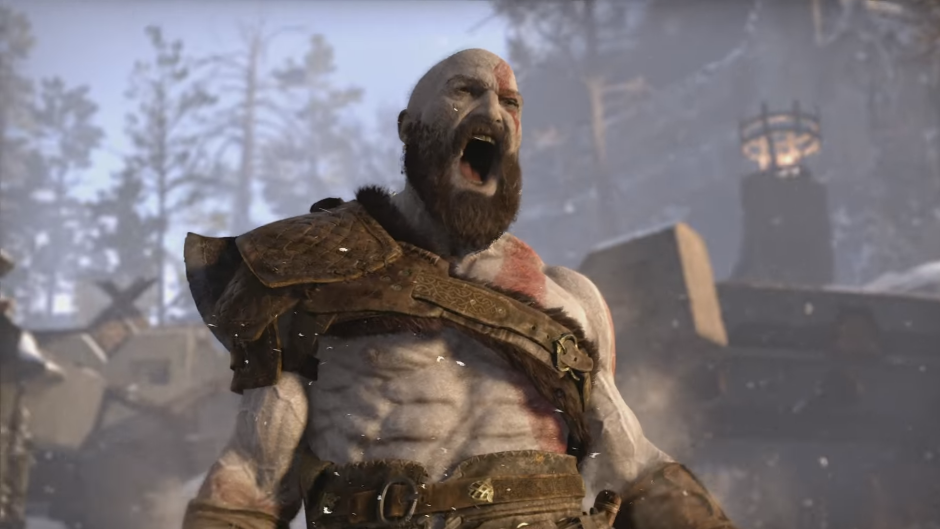
In fact Odin’s anarchic ways eventually got so out of control that he was banished from Asgard for a decade so that the other gods wouldn’t be tarnished by his reputation. Not that that probably bothered him much. Like many Norse gods, Odin was not seen as omnipotent. He was a work-in-progress. Particularly, Odin was an explorer, with a relentless desire for power and wisdom. He was a personification of will, of the drive to overcome. A few years spent wandering the Earth to do as he pleased was likely little punishment at all. He was also shamanic, and regularly communed with the dead, a preoccupation quite frequently tied to his bid to have the strongest warriors on his side at Ragnarok.
All sounds quite a good fit for Kratos, right? Well, no. Again I think there are contradictions too big to reconcile.
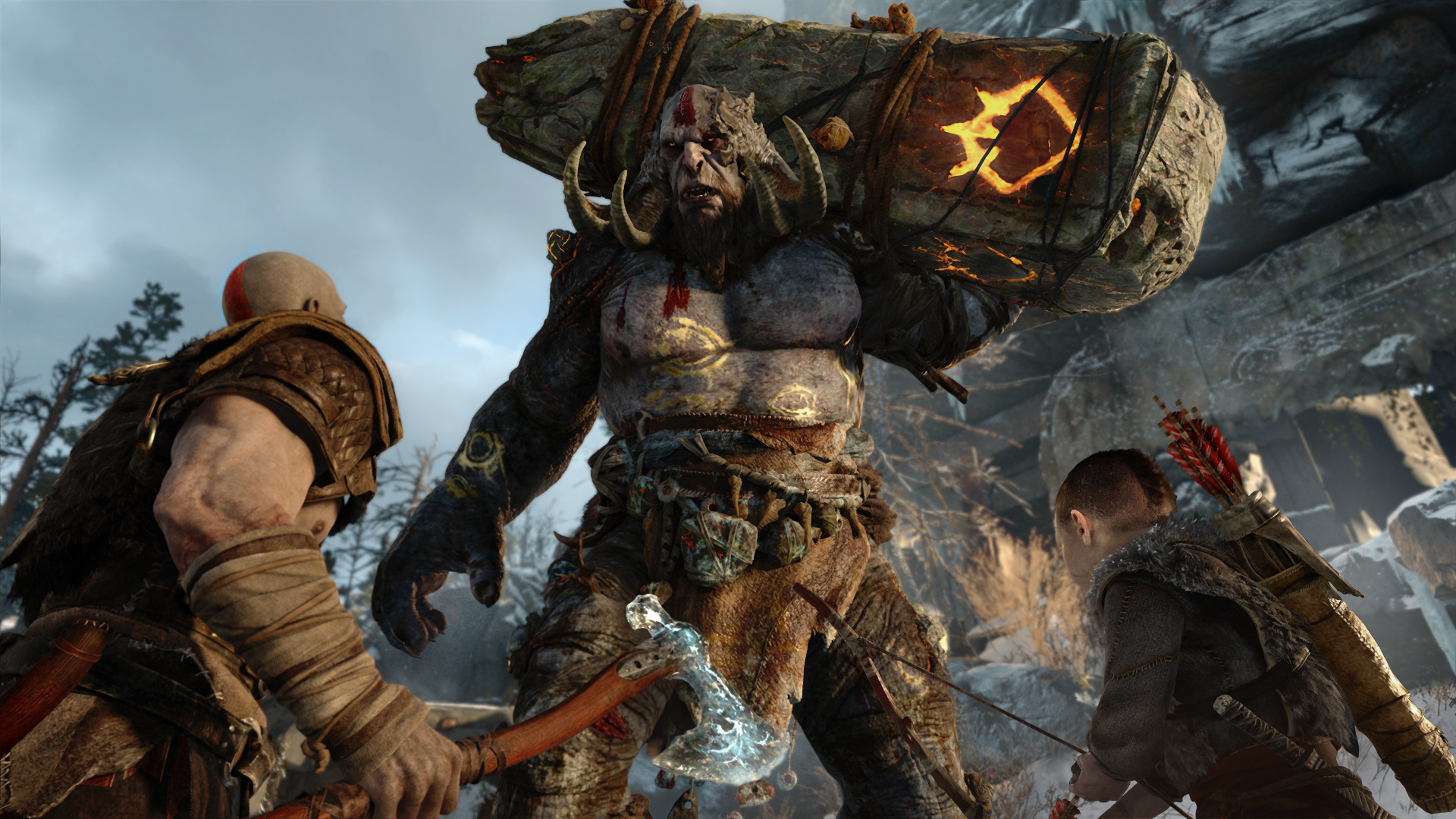
The main one is the simple fact that while all of this hubris, and self-interest, and revelling in violence sounds a lot like Kratos, it actually only sounds like the old Kratos. We know that he isn’t about that any more. Or at least he’s trying really hard to not be. Kratos is trying to be better. He’s trying to keep his rage under control, or at least harness it responsibly, unleashing it only when there’s a good reason to.
Kratos’ uneasy self-control is seen throughout God of War’s E3 demo – you know you got a twinge when he tried to put a reassuring hand on his son’s shoulder, and couldn’t – and indeed, through the very fact that he’s actually focusing on helping another, vulnerable human being with something as mundane as learning basic life skills. That doesn’t seem in-character for Odin, and thus I think we can discount that theory.
So if they’re not Thor and Odin, who are they?
Looking into the wider field of Norse personalities, Tyr is a possibility for the son. More obscure, and therefore more open to narrative interpretation, Tyr is nonetheless a similar proposition to Thor, in that he’s a warrior god of the people, and very much concerned with justice. As an example of just how concerned, as a kid he willingly put his hand in the mouth of the wolf Fenrir – another one of the destined enemies of the gods come Ragnarok – as part of a negotiation, and had it bitten off in the process. Getting deeper into theological history, it’s believed that Tyr – and his name - are descended from the Indo European concepts of day and deity, making him literally the original ‘Sky Father’. He’s a specific personality, but also relatively generic, which makes him ripe for new storytelling.
It’s also worth noting that the ‘T’ rune in the ancient Germanic alphabet was named after Tyr, and – would you believe it? – is shaped like an arrow pointing up to the sky, associating him with both war and the heavens, while also clearly resembling our own, modern letter. Kratos’ son being an archer, we might well be seeing our first concrete clue here. As for Tyr’s fully-paid-up God of War credentials, when the ancient Romans were interpreting the Norse gods as analogues of their own, they openly associated him with Mars as the nearest equivalent. Mars, of course, is the Roman God of War. But it doesn’t stop there.
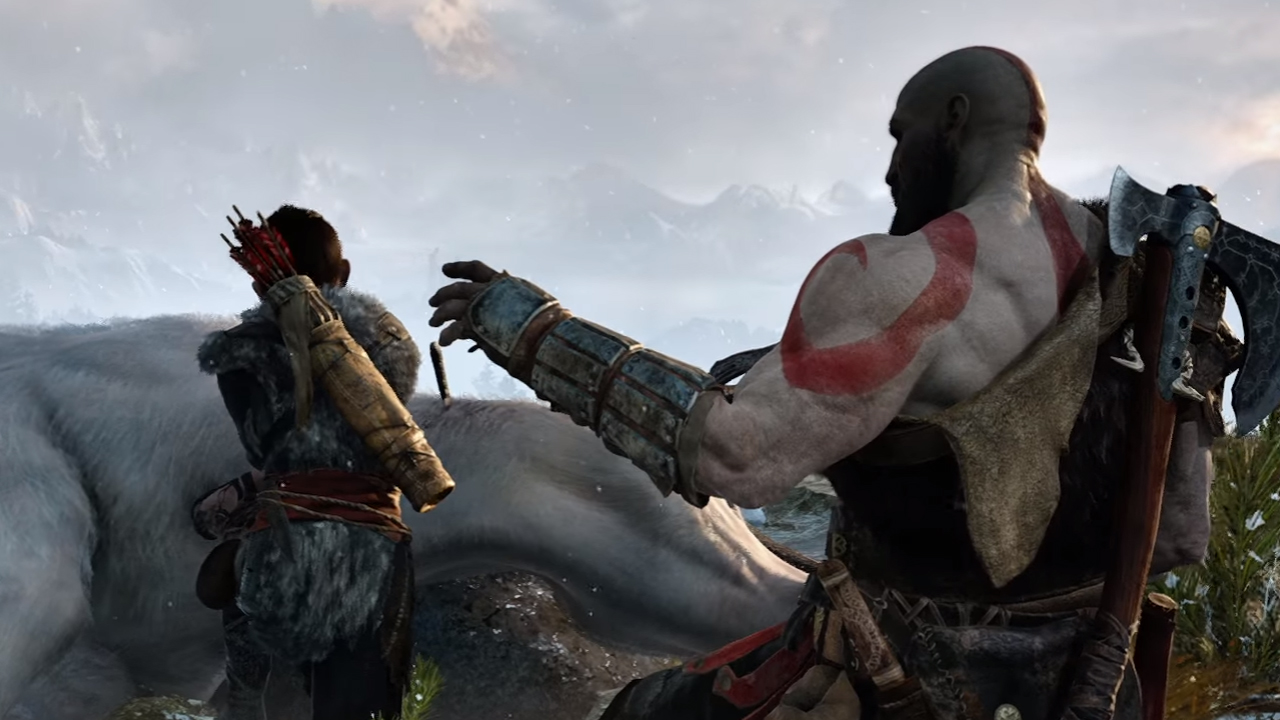
Because Tyr leads us to a related, and even more plausible god. You see, while the connection is debated, some interpret Tyr as being a version of the Norse god Ullr. Here’s where it really gets interesting. Because while Ullr symbolically stands for a lot of the same things – his name became a synonym for the very idea of a warrior in Norse parlance – he’s even more obscure in terms of known stories, but the little that we do know makes him a perfect fit for Kratos’ son.
Ullr is major influence on Scandinavian place names. Many towns make use of his moniker, and a great many temples have been discovered in his honour. Clearly he was a big deal at some point, but we know little of the why and what. That’s a lot of gaps to fill with a new story. More significantly, he was the son of Sif, Thor’s wife, but was not Thor’s son. His father is unknown. Hello, convenient role for Kratos to fill. On top of that, some of Tyr’s most significant iconography carried over to Ullr.
He was an archer, a hunter, and a legendary skier and skater. In fact he’s still considered the patron saint of the skiing community, and the Colorado skiing town of Breckenridge holds an annual Ullr Fest in January, ostensibly to win his favour and bring snow to the slopes. Fits in very nicely with the kid’s portrayal as a budding bow-and-arrow hunter in wintery climes, no? And as well as that, Ullr is known to have risen to rule Valhalla during the ten years Odin was banished. Now that does set us up with a nice framework for a series-appropriate story about ascension and the overthrow of troublesome gods.
But how’s it all going to play out? And who actually is the God of War this time?
You know, I don’t think it’s Kratos. And despite early, cynical jocularity around the idea, I don’t think that the kid is going to die. You see, we know that this is a very different God of War game. It’s not about a wronged man unleashing vengeful hell upon those who hurt him. It’s about a man who once did that trying to atone and improve. It’s the comedown from the night before. It’s about Kratos trying to push his efforts and his skills into a positive cause, specifically the well-being of his son. The son is the focus of the whole thematic journey. He’ll remain throughout the game.
But I don’t think he’ll remain a static factor. In fact, I don’t think he can. We know that he’s at least partially controllable – in that he can be instructed to attack certain enemies and carry out tasks in a support role – but we also know that he’ll level up his skills throughout the game. Kratos isn’t just using him. He’s training him. Does that logically then, lead us to the conclusion that Probably-Ullr will become an increasingly imposing warrior through the course of the game, maybe even eventually able to stand on his own two feet? After all, if he’s going to remain in a meek back-up role, what’s the point of the levelling system at all? And if he is going to grow into his own man, then what’s going to happen to Kratos?
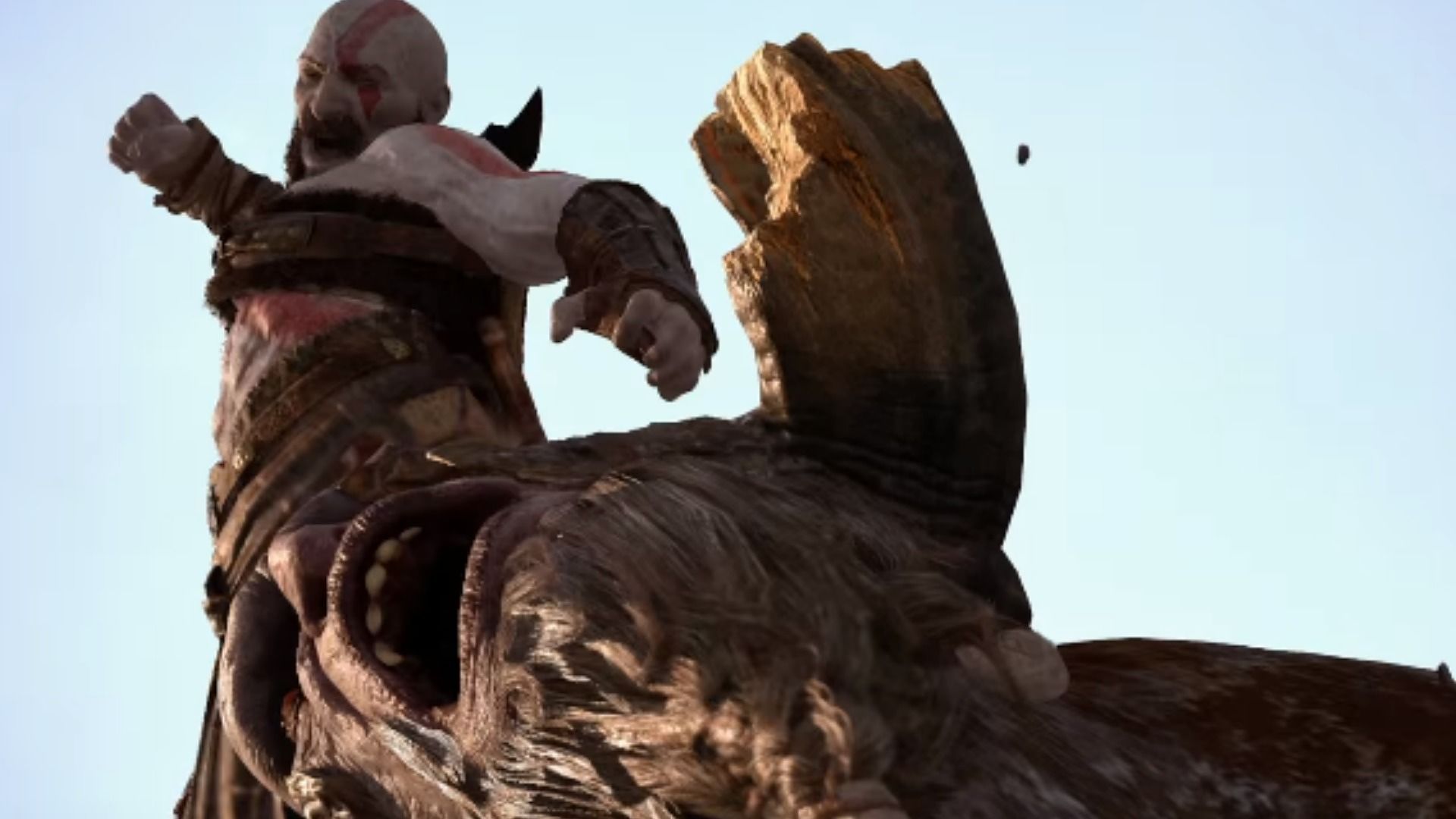
I’m speculating wildly here, but it would be a thematically (and systemically) sound expectation for the son’s growth to become the conduit for Kratos’ redemption, his development over the months – possibly even years – during which the game plays out manifesting a physical embodiment of his father’s influence. Thus, I think we might be looking at a passing-of-the-torch story, Kratos attempting to pass on his experience in a more positive form in order to shape a new protagonist for the series, one who will hopefully grow into a better man than his mentor managed to be.
And if we’re really looking at a hard-hitting dose of post-Last of Us resonance, don’t be at all surprised if Kratos dies part-way through, leaving his son to decide how to carry on. Will he heed the lessons of his father’s attempt at redemptive self-control, symbolically completing Kratos’ journey of reparation for him – a journey that notably started with the loss of his father’s first family? Or will he respond with his own rampage of vengeful fury, starting the cycle anew?
And as for more specific thoughts, beyond the broad-strokes themes, given the series’ previous preoccupation with corrupt gods falling to the will of man, I strongly suspect that Odin is going to be an antagonistic figure. If the game portrays him as I’ve discussed above, then he’ll be a perfect influence through which to explore Kratos’ inner conflict.
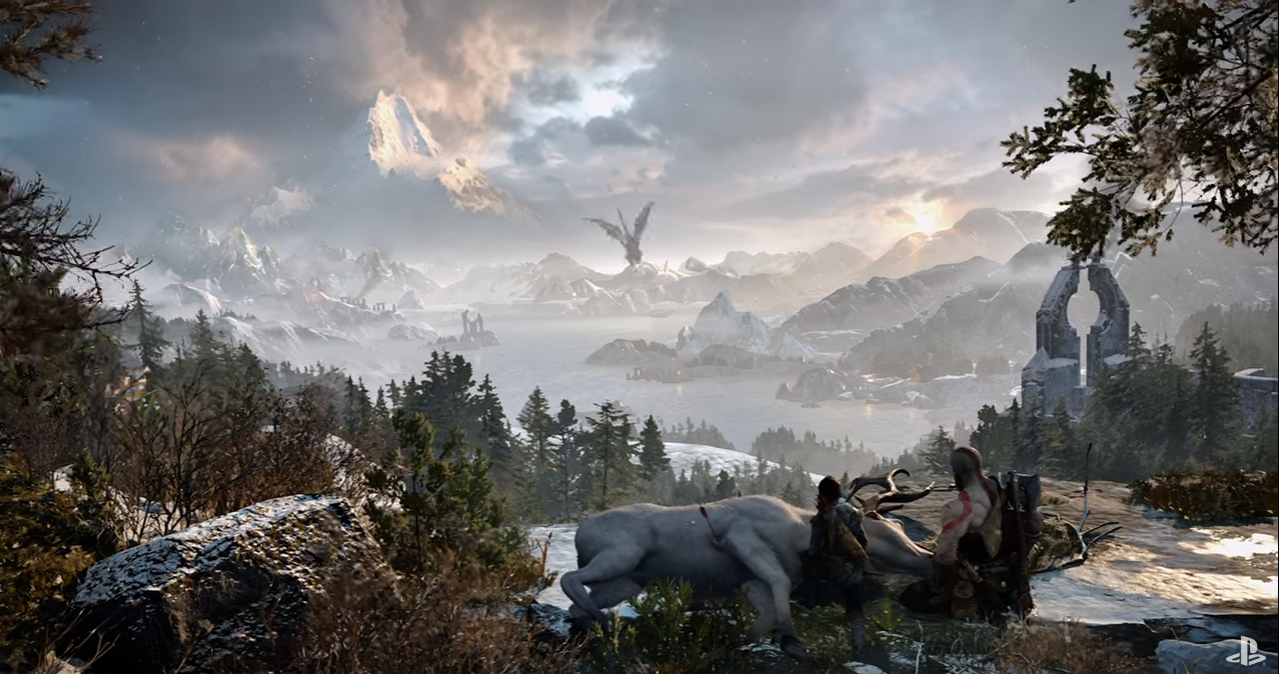
A trickster manipulator, who likes to incite war for war’s sake, and favours the strong-willed, rebellious and indignant? And one who represents a similar celestial pantheon to the one that incited Kratos’ downfall and rage in the first place? There can be no more fitting character to push Kratos to the edge. Expect Odin to be a major hurdle for both father and son, and expect the game’s later story to be concerned Ullr’s rise to usurp the trouble-maker as the head of Asgard. If, of course, the kid is Ullr. Which he almost definitely is.
Otherwise, Loki is a shoo-in. As The Joker of Norse mythology, and almost Ullr’s uncle, he’s bound to be an additional threat – possibly trying to recruit or corrupt the boy – and is exactly the sort of interfering god that the angry part of Kratos will want to take out just to shut down his bullshit. There’s a possibility he’s already been spotted in the gameplay demo, but regardless there’s almost zero chance he won’t appear in the full game.
And as a final, thematically probable foe, we must consider that giant snake. You know, the one everyone thought was a hill until it started moving. There are two frontrunners for that beast’s identity. The most obvious one is the aforementioned Jormundangr, the World Serpent destined to bring about Ragnarok when it uncoils itself from around Midgard. Jormundangr is one of the biggest players in Norse mythology, and will almost certainly become part of the new God of War story. But given its apocalyptic associations – and the series’ probable aspirations for sequels - I suspect it might not become heavily involved until later down the line.
The second, lesser-known possibility is Nidhogg. You might know it from its abstracted appearance in the indie sword-duelling game of the same name, but what you might not know is exactly why it swoops in to devour the victor of that game’s every round. Nidhogg was a serpent-dragon residing in Nastrond, the area of the Norse underworld reserved for murderers, adulterers and oath-breakers, the three most vilified sinners in Norse society. Nidhogg spent its days gnawing on the roots of Yggdrasil, the World Tree that held together the nine realms of Norse mythology, but it also chowed down on the corpses of those particular transgressors.
Again, we’re looking at a perfect-fit antagonist for Kratos, one who embodies his crimes, failings, and newfound guilt, and who is – just like Odin - primed to push him to the limits of his tolerance and resolve by dredging up everything that he’s trying to move on from. In fact, given the Norse social reasons for Nidhogg’s existence, suddenly the series’ transposition to this particular area of mythology seems no coincidence. Philosophically and thematically, there could not be a better crucible in which to explore Kratos’ attempts at atonement for his previous, very specific crimes.
It seems that whatever happens, however it all shakes out, this God of War is primed to make entirely more thoughtful, considered use of the mythology it explores. A use, in fact, that in its metaphorical exploration of existential questions and challenges, may actually be far more in-keeping with the whole purpose mythology had in the first place. It remains to be seen whether God of War fulfils this potential, but if it does, then we could be looking at something much more meaningful and resonant than the gore-filled, Harryhausen theme parks of old.



